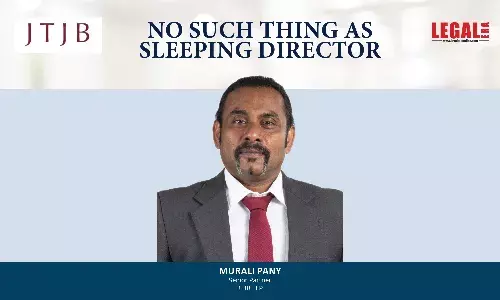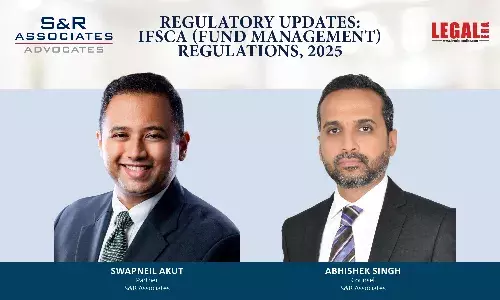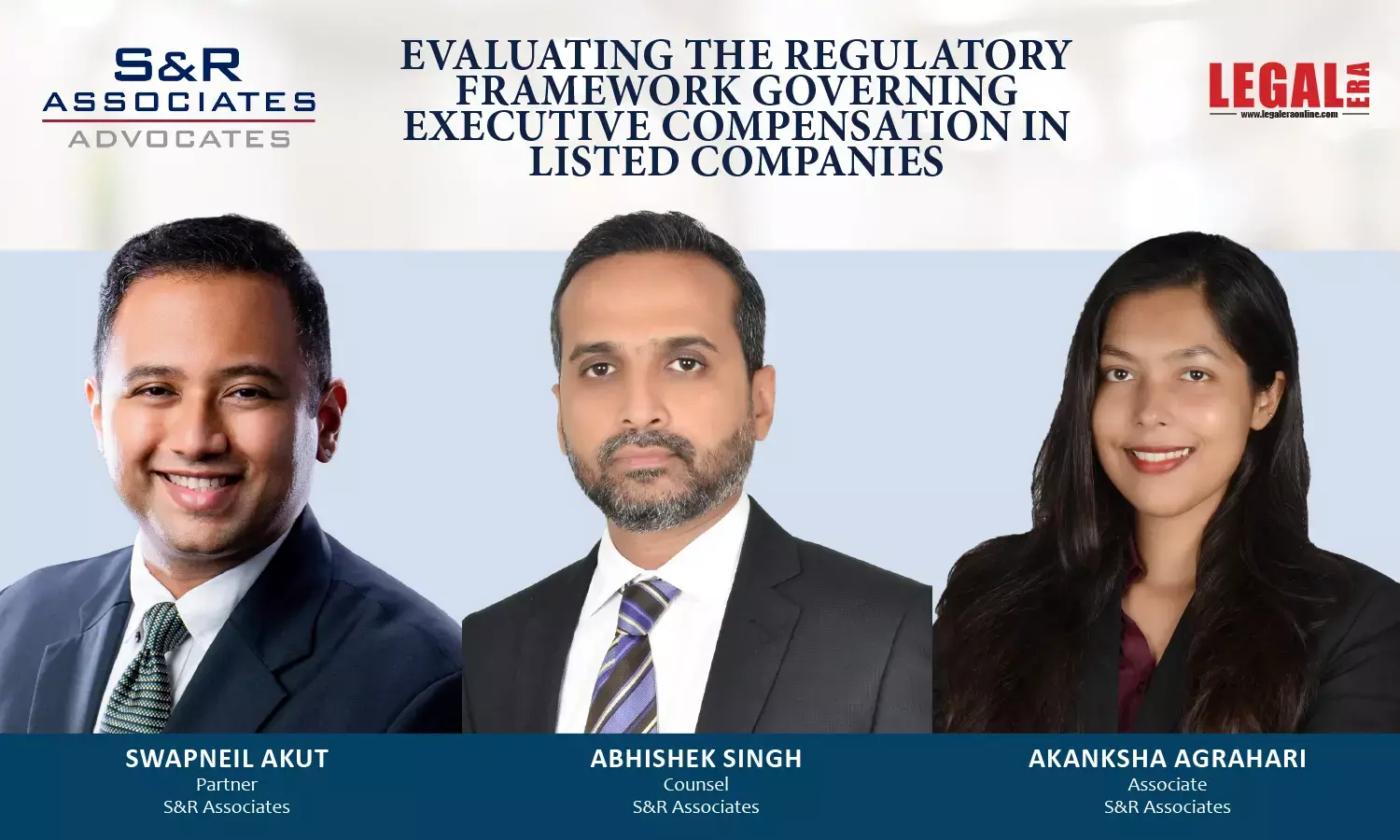General Counsels Must Know Their Labour Laws
No in-house law department of a company can thrive without adequate knowledge of labour and HR laws...Labour laws or laws relating to workmen and labourers in India are often considered as archival in nature and need to be modified with the changing times. The simple question as to who can be construed as a 'workman' as defined in the I.D Act cannot be said to be settled per se as the facts...
No in-house law department of a company can thrive without adequate knowledge of labour and HR laws...
Labour laws or laws relating to workmen and labourers in India are often considered as archival in nature and need to be modified with the changing times. The simple question as to who can be construed as a 'workman' as defined in the I.D Act cannot be said to be settled per se as the facts of each case prompt courts to interpret the same afresh.
The moot question is whether the GC of a company or an institution, can he or she plead ignorance of the laws relating to labour and leave it to the labour practitioners to deal with it? The answer is no - he or she needs to know basics of labour laws.
The GC of a Company or Institution, be it in the financial sector and/or in the manufacturing sector and/or IT sector or any other such sector is normally identified as a person who has to deal in commercial and financial aspects and his or her dealing with labour-related issues is very limited. His or her exposure to the court proceedings visa viz. labour or employment law is limited to the cases filed in various fora by or against the company.
Most in-house GCs would not like to deal with aspects of labour laws, since they are not only complex in nature but the persons whom one has to deal on the other side are trade union leaders or angry employees fighting for their rights. Besides when dealing with HR issues, the same has to be interpreted and concluded not only based on the letter of law but one has to consider the fact that the said decision involves not only the employee but his or her family.
In short, the cozy comfort of dealing in a complex commercial dispute is absent, while dealing in labour or HR-related issues. My experience with budding would be in-house counsels also highlights this fact. Each and every one I have met has never expressed the desire to deal in labour or HR-related issue. Everyone wants to be an Inhouse counsel dealing in corporate laws.
But times have changed when an In-house counsel can plead ignorance of labour laws. Therefore in this Article, I propose to deal with the fundamentals of certain labour laws which need to be understood by an In-house counsel. It has been made clear that the entire Article revolves round the private sector and that too the financial and service sector and Banking and not that of PSU's or semi government undertakings or the manufacturing sector.
In the financial and banking sector, the most important labour laws that are applicable and with which an Inhouse counsel has to be acquainted are Provisions of the Contract Labour Abolition Act, 1970.
In these sectors save and except core functions as stipulated by the respective regulators, the non-core work is either entrusted to outsiders and the manpower required to carry out some functions is sourced through a contractor to ensure that, while in reality the said employees of the contractor work along with the permanent staff, they are kept aloof and branded as contract workers not falling into the rolls of the company. This enables the company to save a lot on various benefits which otherwise would have been applicable to permanent staff.
The GC has to keep in mind the fact that under the said Act, the principal employer is always in the company and their key managerial persons and not the contractor. Failure on the part of the contractor to comply with statutory obligations like payment of minimum wages, provident fund and such others will enable authorities to prosecute the principal employer. This calls for a fair amount of expertise in drafting of the contract with the contractor and therefore the GC has to have basic knowledge under the said Act.
It is also duty of the GC to periodically check with the compliance dept. to ensure that they call for records of statutory payments which are collected from the Principal employer to ensure that they are really paid to the contracted employee or not.
There is always a tendency to use the contracted employee for works other than for what he or she is contracted. This in the long run creates a situation where the contracted employee ends up claiming permanent employment. It is also the duty of the GC to ensure that the Managers or Departmental Heads or a permanent employee does not enter into any correspondence with the said contracted employee especially pointing out his or her late coming or lack of performance or on policy issues, such issues should be only reported to the supervisor of the contractor who is assigned as per the contract to oversee functions of the contracted employee. Unless the In-house GC has a fair amount of basic knowledge on this issue, the company may end up with a lot of unwarranted litigation and prosecution.
Another area where the GC needs to advise the management especially the HR department, is the need to follow principles of natural justice, while dealing with as employee who has been either accused of fraud, misappropriation and/or against whom proceedings have been initiated under the respective staff rules, it is always the case of HR dept. to either terminate or dismiss or punish the employee at the earliest and close the file. They seldom think about the repercussions of not following the principles of natural justice. In such cases, the maxim that justice should not be said to have been done, but has to be seen to have been done has to be followed.
Equally, the GC should be able to advice on the matter of a simpliciter termination under relevant staff rules. In such cases, the GC should be in a position to ensure that a valid and sustainable reason does exist for such a termination. Here is a case where the performance of an employee was found lacking for the past few years. After the third year of appraisal, the HR summoned the employee and gave him the option to resign and stated that if he did not resign with immediate effect, termination shall follow. The employee refused to resign and sought a period of nine months or earlier, subject to his getting a job. This was not acceptable to the company and when terminated, he approached the court alleging victimisation and claiming compensation. As the case is subjudice, I am not going into the merits. However in this case, the fact that HR and G.C erred in the following:- the employee was never warned earlier and told about lack of performance and about the fact that if he did not improve, it would lead to termination.
The idea of termination in lieu of one month's salary came up only at the end of the third year. Secondly, having decided to terminate him for lack of performance, it was not a good idea to have offered him a chance to resign, though it may be a good gesture on the part of the company's HR practice. Having given the option to the employee, the employee felt that the termination was an act of victimisation.
Finally, GCs should be able to put wisdom in the heads of HR to ensure that punishment meted out should have a bearing on the involvement of the employee accused in the charge sheet, especially when more than one person is charged sheeted for the same offence. There are instances when gullible junior officers are made scapegoats and seniors who really are the mastermind escape due to the trust created by them over the years with the management. Such issues arise when huge targets are fixed as KRAs and the manager, who wants to achieve the same, often closes his eyes and ears to the way the business is roped in to achieve targets, later when caught either by regulator or otherwise, the entire blame is put on the junior officer. If not caught, the credit goes to the senior.
Another area which needs the GC's expertise is regarding the various requests which come to HR, either from an estranged husband or wife who may be fighting a custody battle or a divorce proceeding. In such cases, the other Party often needs the details of allowance, salary and perks to be submitted to court. The fact that such details can be parted only upon a court order or direction has to be kept in mind There are cases of complaints being received from spouses, mostly in such cases, from the wife against an employee about domestic violence, ill-treatment and about extra-marital affairs. In such cases, the GC should use his wisdom to advise HR as to how far and to what extent and as to how to react to such complaints. In such cases, the advice should be based on company's policy on the employee's ethics and the resultant reputational loss that can be caused to the company.
In short, as regards HR issues, the GC should act as an umpire to ensure natural justice and fair play and compliance to laws.
All I can say is that no in-house law dept. of a company can thrive without having adequate knowledge about labour and HR laws. Though not a master of labour laws, the GC has to be a student of labour laws along with corporate laws, if one has to be an all-rounder.
Disclaimer – The views expressed in this article are the personal views of the author and are purely informative in nature.









